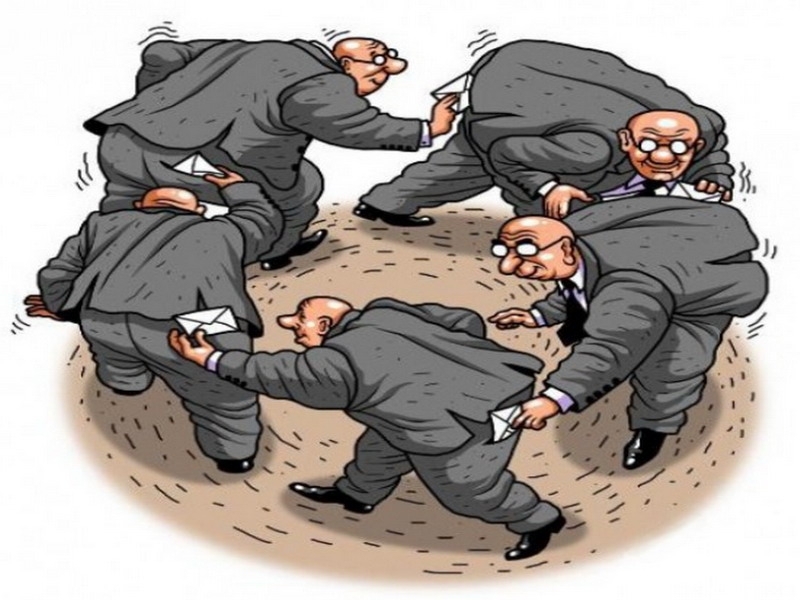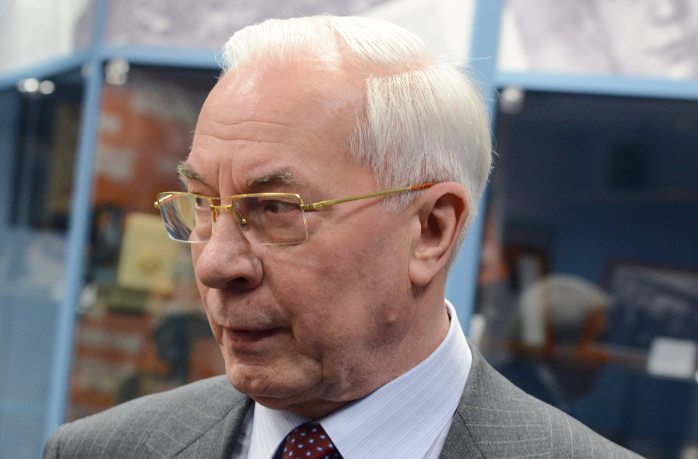The most important source of government revenue for Ukraine is VAT charged on imports. Currently this generates almost €6 Billion revenue annually (see Table 1). This amount could still be a lot higher if Ukraine succeeded in reducing highly lucrative cross border smuggling.
| Table 1. Import revenues in the Ukrainian Central Budget | billion USD | % Of revenue | ||
| 2014 | 2015 | 2014 | 2015 | |
| VAT on imported goods | 107.2 | 126.4 | 30.2 | 26.8 |
| Excise on imports | 16.9 | 23.5 | 4.8 | 5.0 |
| Import duty | 12.4 | 31.5 | 3.5 | 6.7 |
In 2013 the Organized Crime and Corruption Reporting Project (OCCRP) estimated that at the Odesa port alone smuggling caused a loss of $2.5 Billion in tax revenue annually for Ukraine. In October of 2014 president Poroshenko went to Odesa and claimed that his assistants had found no goods on the market there that had proper custom documents. In January of 2015 the president of the European Business Association (EBA) complained that importers were forced to bribe custom officers post Maidan rather than pay import duties in order to be competitive on the market. This clearly hints at a structural problem which causes a lot of lost revenue for Ukraine and an unfair market for honest companies.
Ukraine could request physical aid to collect custom duties and import VAT at the donor conference rather than money. The benefit of this is that it does not have to be paid back like a loan and that it makes the market in Ukraine more honest. For the EU it would be relatively cheap to grant, yet it will have a high budget impact for Ukraine. Ukraine could request that all Ukrainian border posts moved in with their EU counterparts at the long joint border. This act alone already saves on infrastructure costs for Ukraine.
The EU custom officers would jointly with their Ukrainian colleagues check shipments and enter the data and payment of all goods shipped out of the EU and into Ukraine. If these EU border guards make a case against a Ukrainian custom officer for fraud he/she should be fired. It will make smuggling way more difficult. Companies or individuals caught smuggling should face steep fines, and smuggling goods out of the EU into Ukraine should be punishable as well in the EU. A lot of the people currently organizing this smuggling would not like to be blacklisted in the EU.
This strategy obviously leaves out the ports which are a major source of imports but here we could work through a sort of adoption scheme. For example, the custom services of the ports of Rotterdam and Antwerp could jointly adopt Odesa custom services and organize joint operations in Odesa port. Mariupol custom operations would be handled jointly with Hamburg and Bremerhaven. These EU custom officers are very experienced and I doubt they can be misled long or at a scale of €2 billion in tax revenue. As these EU ports are at least 20 times bigger in traffic than their Ukrainian counterparts, it would not put too much burden on their custom operations. Ukrainian custom officers could gain experience by working in the EU ports, replacing those custom officers working in Ukraine as a part of the exchange program.
If part of the increased revenue is used to pay Ukrainian custom officers a higher wage it will further reduce corruption at the border. The joint operations should get the Ukrainian customs past the current hurdle where they prefer receiving todays bribes rather than a future promise of a higher wage if they do collect government revenue.
If custom operations are conducted jointly with EU custom officers Ukraine should be able to generate at least €2 billion of extra VAT import revenue, which corresponds to the loss estimated at Odesa port alone by OCCRP. Now already the EU hands Ukraine information to help fight fraud but obviously handling it together is a much bigger commitment. Besides the revenue benefit for Ukraine it also creates a more honest market as no longer certain companies enjoy an unfair competitive advantage over others.
If less fraud takes place in imports and exports, Ukraine will be able to increase revenues not just the from VAT on imports but also from import duties.
Simply getting customs in order can generate a lot of extra revenue that Ukraine is currently missing. Getting help for this from the EU should be easy at a donor conference as it requires almost no new funds and generates structural revenue streams for Ukraine.
[hr]Originally published on VoxUkraine






